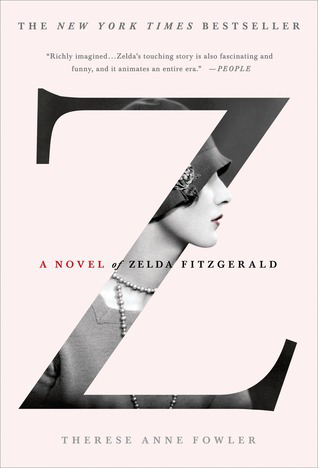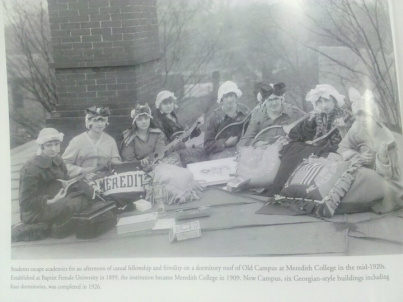
source
When beautiful, reckless Southern belle Zelda Sayre meets F. Scott Fitzgerald at a country club dance in 1918, she is seventeen years old and he is a young army lieutenant stationed in Alabama. Before long, the “ungettable” Zelda has fallen for him despite his unsuitability: Scott isn’t wealthy or prominent or even a Southerner, and keeps insisting, absurdly, that his writing will bring him both fortune and fame. Her father is deeply unimpressed. But after Scott sells his first novel, This Side of Paradise, to Scribner’s, Zelda optimistically boards a train north, to marry him in the vestry of St. Patrick’s Cathedral and take the rest as it comes.
What comes, here at the dawn of the Jazz Age, is unimagined attention and success and celebrity that will make Scott and Zelda legends in their own time. Everyone wants to meet the dashing young author of the scandalous novel—and his witty, perhaps even more scandalous wife. Zelda bobs her hair, adopts daring new fashions, and revels in this wild new world. Each place they go becomes a playground: New York City, Long Island, Hollywood, Paris, and the French Riviera—where they join the endless party of the glamorous, sometimes doomed Lost Generation that includes Ernest Hemingway, Sara and Gerald Murphy, and Gertrude Stein.
Everything seems new and possible. Troubles, at first, seem to fade like morning mist. But not even Jay Gatsby’s parties go on forever. Who is Zelda, other than the wife of a famous—sometimes infamous—husband? How can she forge her own identity while fighting her demons and Scott’s, too? With brilliant insight and imagination, Therese Anne Fowler brings us Zelda’s irresistible story as she herself might have told it. (source)
I’ve noticed over the past couple of years that my taste in “literature” has been changing quite substantially. Where I was once interested (and quite infatuated) with the love stories of Nicholas Sparks and the goings on of Rosewood, Pennsylvania and the Pretty Little Liars that live there, I find myself now preferring historical fiction and biographies. I find myself drawn towards more complex storylines, more adult content (and I don’t mean that in an explicit sense, as some have come to assume when I’ve used that particular phrasing in the past). I suppose that is something that comes along with growing up – your tastes change, and they evolve, and you find yourself drawn to things you once never saw yourself ever selecting.
I’ve always been a fan of the historical fiction genre. My love affair with the genre actually began when I was in fourth grade: I read a book called The Nine Days Queen by Karleen Bradford which chronicled the rise and subsequent fall of Lady Jane Grey, who was Queen of England for only nine days before being convicted of treason. I read that book and I became fascinated. Historical fiction introduced me to people and stories I might not have become acquainted with otherwise. This particular genre has opened my eyes to “watershed moments” I may not have even paid attention to, and given me different points of view from which I can look at significant events and significant people.
More recently, I’ve become quite interested in biographies and memoirs. Almost every time I enter my favourite second hand bookshop in my hometown, I immediately move towards the biography/memoir section, and I begin scanning the shelves for books about the people that fascinate me. I scan in search for books about Humphrey Bogart and Lauren Bacall, about Cary Grant and Katharine Hepburn, Fred Astaire and Ginger Rogers. I’ve become fascinated by learning about these people, about their lives, and about who they were off screen and behind the scenes. Biographies have become this way for me to look at the people whom I admire and respect, and have allowed me to see them from more than one angle.
Z: A Novel of Zelda Fitzgerald by Therese Anne Fowler takes these two beloved genres for which I am a devoted reader, and matches them up, producing a story that is sad, and beautiful, and tragic (yes, I am referencing a Taylor Swift song, I just couldn’t resist). Z takes these two larger than life individuals, Zelda Sayre and her beloved F. Scott Fitzgerald, and shares their story from the perspective of the one who’s voice is never really heard. It gives Zelda the opportunity to tell her side of the story, and tell that world what was going on behind closed doors with the infamous Fitzgeralds.
The novel chronicles the relationship between Zelda and Scott, highlighting the good times as well as showcasing the bad. It shows the quick rise of the relationship – their first meeting and their quick-blooming love affair – and their steep and steady decline – Scott’s relationship with alcohol and the couple’s relationship with one Mr Ernest Hemingway. The novel provides a window into the Fitzgerald’s world, allowing readers to understand every temptation and every challenge and every consequence and reward these people faced as they went about trying to create a life and a legacy for themselves.
I cannot guarantee that this book is 100% accurate (unfortunately I haven’t yet been able to get my hands on many biographies about Zelda just yet) or that it provides a broad and comprehensive enough scope, but I do think that it is a good introduction to the Jazz Age’s golden couple. The time and energy that the author put into collecting and displaying her research is evident. Fowler did a tremendous job making Zelda a three-dimensional “character” and provided a really strong, passionate voice for one of the most fascinating people in the history of literature (in my opinion). This novel serves as the foundation upon which a reader can go on and seek out more information about this incredibly fascinating woman, and about the relationship that has come to sort of represent the glitz and the glamour of the 1920s.
I thoroughly enjoyed this book, and I can say without a doubt it has found a place amongst my all time favourites. Z: A Novel of Zelda Fitzgerald was very much a treat (as well as a heartbreak) to read. I highly recommend this book to anyone and everyone seeking out an interesting summer (or any time) read, a glimpse into the Jazz Age, or an brilliant piece of biographical fiction.
Advertisements Share this:




